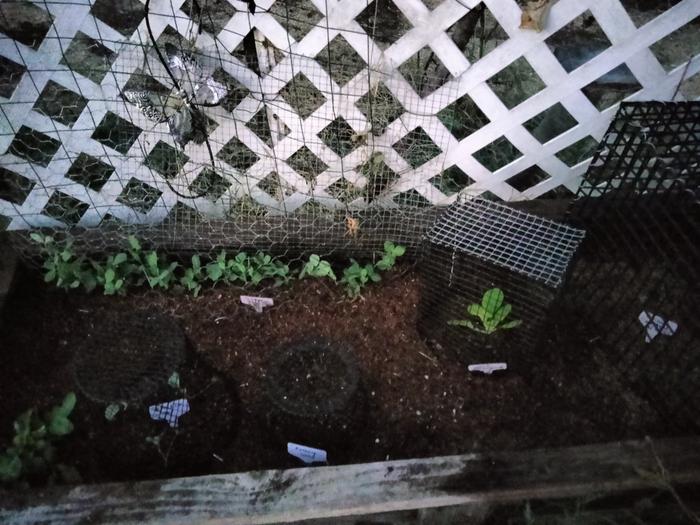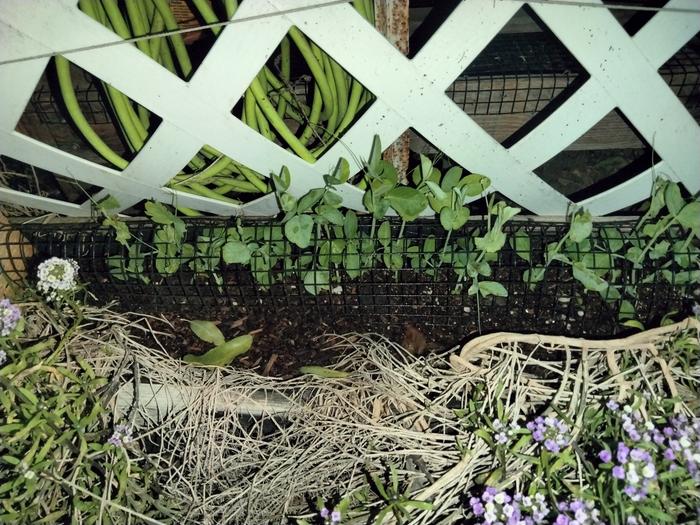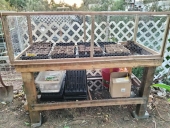
 12
12




“We can complain because rose bushes have thorns, or rejoice because thorn bushes have roses.” — Abraham Lincoln
 8
8




 I think setbacks like that are really hard. I'm figuring out how to work around difficulties of a different sort. Lack of enough sun/forested balcony tree cover. They did trim the trees a couple o days ago and I can tell it will allow a little bit more sun in, but still its going to be rough for sun-loving vegitibles, while foresty plants will grow happily. I'm going to experiment with the growlights for now just to see what they do and all, and then begin gardening in earnest again come Feb. or March.
I think setbacks like that are really hard. I'm figuring out how to work around difficulties of a different sort. Lack of enough sun/forested balcony tree cover. They did trim the trees a couple o days ago and I can tell it will allow a little bit more sun in, but still its going to be rough for sun-loving vegitibles, while foresty plants will grow happily. I'm going to experiment with the growlights for now just to see what they do and all, and then begin gardening in earnest again come Feb. or March.
I do Celtic, fantasy, folk and shanty singing at Renaissance faires, fantasy festivals, pirate campouts, and other events in OR and WA, USA.
RionaTheSinger on youtube
 7
7





 7
7




- Tim's Homestead Journal - Purchase a copy of Building a Better World in Your Backyard - Purchase 6 Decks of Permaculture Cards -
- Purchase 12x Decks of Permaculture Cards - Purchase a copy of the SKIP Book - Purchase 12x copies of Building a Better World in your Backyard
 12
12




Jen Fulkerson wrote:I love my garden it brings me joy and peace. I don't mind the hard work. There are times when I'm so frustrated. This year has really tested my resolve. I have run into one problem after another.
https://againfarmstead.com/ | @againandagainfarmstead
 9
9




 7
7






“We can complain because rose bushes have thorns, or rejoice because thorn bushes have roses.” — Abraham Lincoln
 5
5




Creating edible biodiversity and embracing everlasting abundance.
 4
4




“We can complain because rose bushes have thorns, or rejoice because thorn bushes have roses.” — Abraham Lincoln
 5
5




“We can complain because rose bushes have thorns, or rejoice because thorn bushes have roses.” — Abraham Lincoln
 6
6




“We can complain because rose bushes have thorns, or rejoice because thorn bushes have roses.” — Abraham Lincoln
 4
4




I do Celtic, fantasy, folk and shanty singing at Renaissance faires, fantasy festivals, pirate campouts, and other events in OR and WA, USA.
RionaTheSinger on youtube
 2
2




“We can complain because rose bushes have thorns, or rejoice because thorn bushes have roses.” — Abraham Lincoln

|
Can't .... do .... plaid .... So I did this tiny ad instead:
montana community seeking 20 people who are gardeners or want to be gardeners
https://permies.com/t/359868/montana-community-seeking-people-gardeners
|






